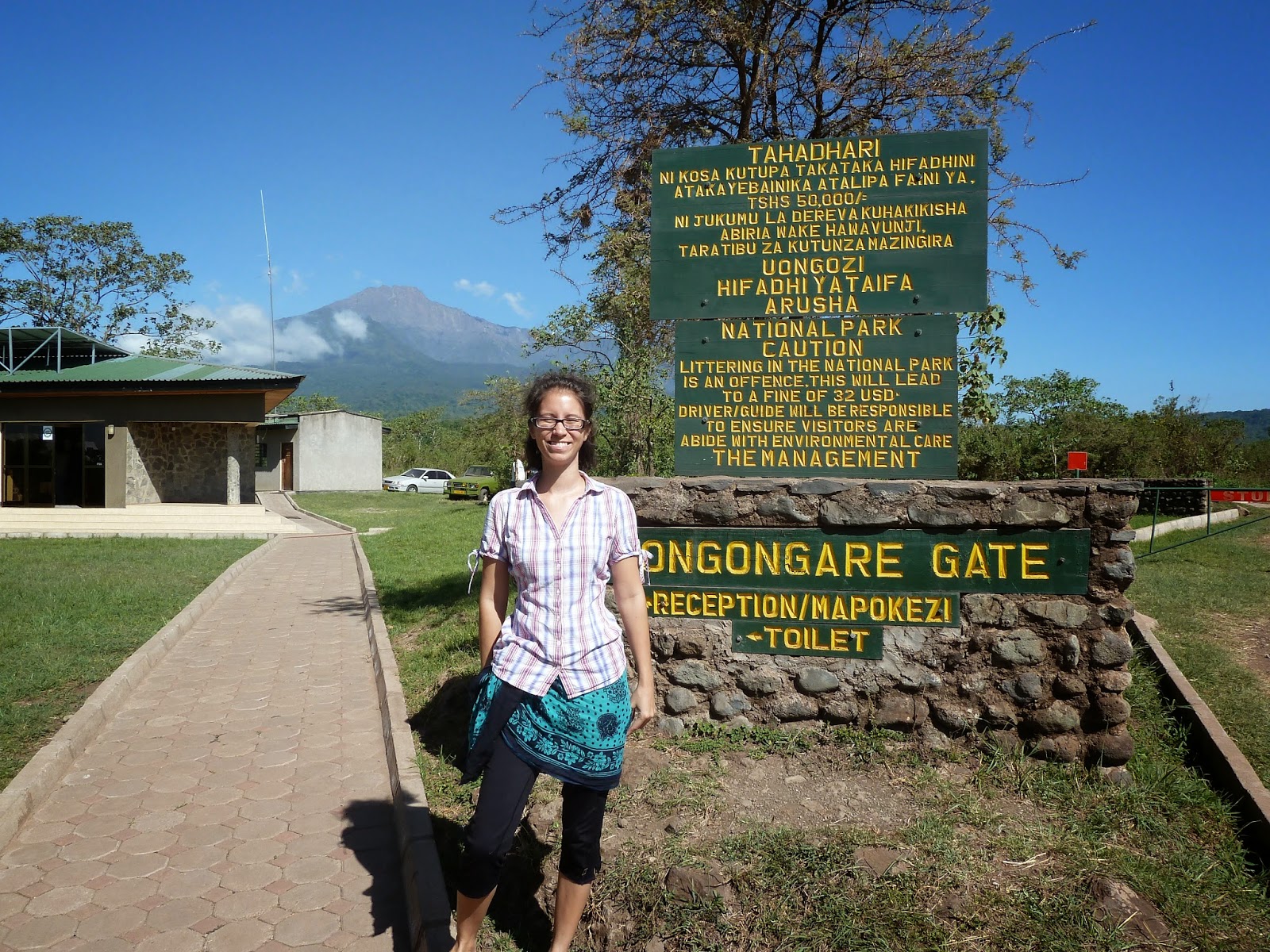Having a friend come out to visit in March, I'd saved the really
touristy attractions of Tanzania to experience together with him. I was a bit nervous
that a first time trip to Africa would be a huge challenge for some people and
hoped that the poverty, accommodation and safety of transportation would
not be too much of a culture shock. I hope he won't mind me sharing but my
concerns were raised when, on arriving at the hotel in Dar Es Salaam, he was
very reluctant to use the toilet. My fears were ill-founded and after a night's
sleep and a portion of street-barbecued chicken and (possibly) unwashed salad,
my friend not only sat on the toilet he embraced everything that Tanzania had
to give.
The first part of the adventure involved climbing Mount
Meru, the second highest mountain in Tanzania at 4562m. Having stopped any
regular exercise months ago and despite gaining a few* pounds, I still thought
climbing Mount Kilimanjaro's smaller sister would be more of a hike than a real
challenge. Turned out I was wrong and on Day 3 after waking at midnight for a 5
hour climb to the summit to see the sunrise, the full impact of my sloth-like
fitness regime reached its crescendo as I was pushed from behind over the crest
of the mountain. Of course, I had missed the sunrise and the rest of my group
(except my friend) had already started their descent but at least I made it to
the top, albeit dry-retching and feeling truly awful. I wish I could blame
altitude sickness but I walked even slower on the way back down even with both the
guide and my friend sharing my load and clothes as I discarded them. Fourteen
hours of walking later we reached the lowest hut and the rescue car was called
in to drive us the rest of the way off the mountain. Embarrassing.
Week 2 we were joined by more friends for a far more
leisurely trip to the safari parks of the north. All the animals came out to
play; sometimes too close for comfort. It was hard to remember you weren't in a
zoo they looked so peaceful, at least that was my excuse as our guide had to
pull me back into the car when I tried to get out to see the lions up close.
They were 3 metres away and I would "surely have been attacked" if
they had heard me, or so my over-protective guide said. The cats looked
completely nonchalant to me, sleeping off the feast of an earlier zebra kill.
I'm sure they wouldn't have noticed me...
My trip highlight was driving through the Ngorongoro
Conservation Area which unlike safari parks is inhabited by people as well as
animals. The Maasai tribes live side by side with the zebra, wildebeest and
giraffes although their villages are surrounded by tall fences to keep out the
lions and other predators and protect their own herds. We visited one of the
villages where I had the oddest experience of sitting in a dark Maasai hut made
out of dried cow dung and full of flies. The Maasai have their own language,
Kimaasai, but one of the tribal warriors and I talked in Kiswahili whilst I translated
for my friends to describe typical village life. Not something I would have
predicted I would be doing a year ago.
The night-time rains became a challenge as our tents
couldn't resist the downpour any longer and we awoke to soggy sleeping bags, wet
clothes, wrecked I-phones and broken spirits. The mud also meant we got stuck
in the middle of the Serengeti for two hours despite our best efforts to dig
out the car. Luckily the smell of fear did not attract any beasties although
the vultures weren't too far off. By the fifth night the boys had had enough of
the rain and stayed in a local guesthouse. Nature came a bit too close for
comfort that night, when walking back to my own tent I noticed the camp was
full of buffalo. Although described as the most dangerous of the Big Five, thankfully
it is also a vegetarian.
The final week of our trip was spent drying out on the
beaches of Zanzibar. The crystal clear ocean, freshly cooked seafood and relaxing
by the infinity pool were well appreciated by everyone. Sadly the snorkelling
trip and ensuing violent seasickness wasn't nor was the food poisoning and weeklong
diarrhoea.
Reading this back, the holiday sounds like a unrelenting
nightmare which I promise wasn't the case. Well, maybe a few small, unrelated
horrors that kept on coming but then isn't that what makes going home again so
special......?
*a few pounds may be an underestimate.






















